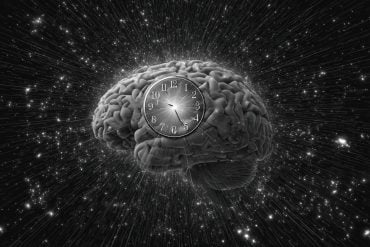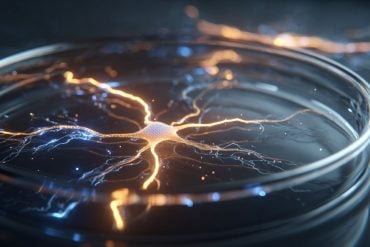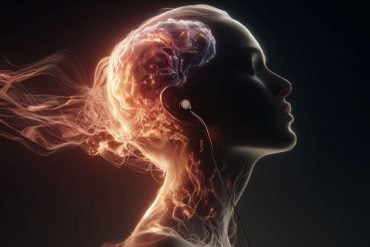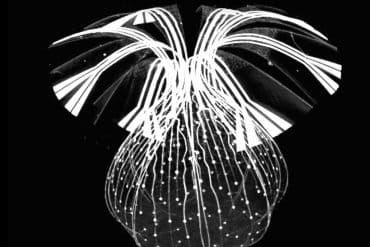Summary: New research uncovers that the cerebellum is critical for long-term motor skill memory formation, distinguishing it from short-term memory systems. Patients with cerebellar damage showed normal performance on motor tasks over short intervals but were impaired with longer gaps, linking the cerebellum directly to long-term sensorimotor memory.
These findings resolve inconsistencies in prior studies and highlight the importance of time intervals in understanding motor memory degradation in cerebellar degeneration.
Key Facts
- The cerebellum is essential for forming long-term motor skill memories.
- Patients with cerebellar damage performed better on short-interval tasks than long-interval ones.
- The study reconciles inconsistencies in earlier research by focusing on trial intervals.
Source: Harvard
Do you remember the name of your second-grade teacher or what you ate for lunch today? Those memories may be separated by decades, but both are considered long-term memories.
More than half a century ago, neuroscientists discovered that damage to a brain region called the medial temporal lobe (MTL) caused a severe impairment to long-term declarative memory—memories for explicit facts such as names and dates—but left very short-term memory intact.
Patients with damage to the MTL could keep up with and carry on a short conversation but, just a minute or two later, couldn’t remember that the conversation even took place.
Surprisingly, though, those patients could learn new motor skills and retain them for days, months, or even longer, indicating that MTL damage had little effect on memories for motor skills.
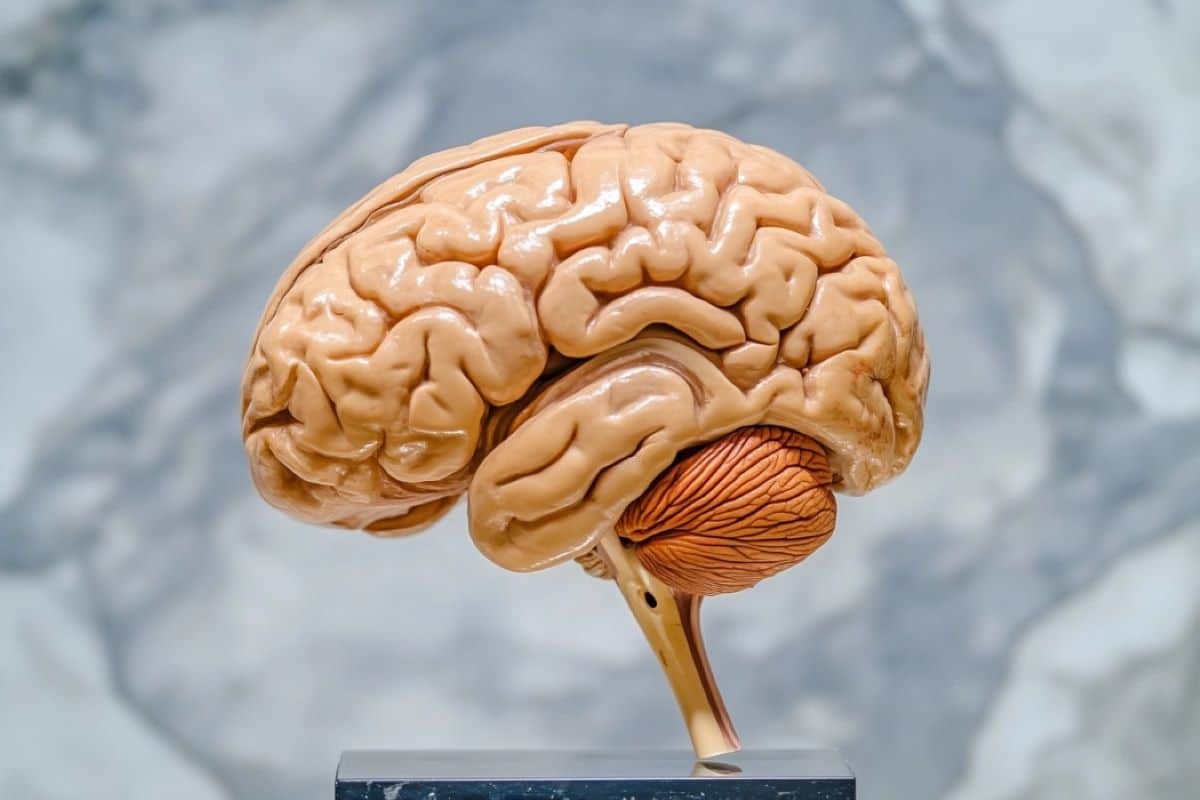
So, what brain region is responsible for long-term motor skill memories, like riding a bike? Are there distinct regions where short- and long-term sensorimotor memories are formed? Researchers have been trying to answer these questions for years.
Now, researchers from the Harvard John A. Paulson School of Engineering and Applied Sciences (SEAS) have shown that, just like declarative memories, short-term and long-term memories for motor skills form in different regions of the brain, with the cerebellum being critical for the formation of long-term skill memories.
The research is published in the Proceedings of the National Academy of Sciences.
“This work advances our understanding of the role of the cerebellum in sensorimotor learning and points towards the role of the cerebellum as a gateway to the formation of stable memories for sensorimotor skills, largely independent of the short-term memory systems,” said Maurice Smith, Gordon McKay Professor of Bioengineering at SEAS and senior author of the study.
Researchers have long known that the cerebellum is critical for motor learning, but the role it plays in forming short- and longer-term skill memory was unclear. To understand the connection between the cerebellum and these memories, Smith and first author Alkis Hadjiosif, a postdoctoral fellow at SEAS and Massachusetts General Hospital, took inspiration from a seemingly messy set of previous results on motor learning in patients with cerebellar damage.
While these previous studies all found evidence for impaired sensorimotor learning in individuals with cerebellar damage, the size of this impairment varied widely among them.
“While this discrepancy might have been due to differences in the amount or precise location of the damage or to differences in the types of motor learning tasks employed, we had a different idea,” said Smith.
Smith and Hadjiosif thought that subtle differences in the time between trials—what they call the memory window—might explain most of the observed discrepancies.
“This would be the case if long-term sensorimotor memory was specifically impaired by cerebellar damage because longer memory windows would increase reliance on the impaired long-term memory,” said Hadjiosif.
The challenge was that these time intervals were seldom reported in published papers. Part researchers, part detectives, Smith and Hadjiosif tracked down the detailed raw data from two of these studies, from which they could determine the intertrial intervals for the entire trial sequences for all the individuals studied.
The researchers found that both studies had rather short intertrial intervals overall and reported only small impairments in learning for patients with severe cerebellar disease compared to healthy individuals.
This meant that when participants were asked to perform the same task, say, five times, with only a few seconds between each repetition, the patients with cerebellar degeneration performed only slightly worse than healthy individuals.
But by diving deeper into the data, Smith and Hadjiosif found something interesting. Between trials, there was sometimes more time to allow the research team to reset or the participant to take a short break.
“When we examined these trial-to-trial differences, we found that the same patients who displayed near-normal performance on their short-interval practice trials were dramatically impaired on long-interval trials within the same session. And this was the case in the data from both studies,” said Hadjiosif.
The team then looked at more than a dozen additional studies in which individuals with cerebellar degeneration performed motor tasks and found that the studies that used a larger number of movement directions in the task—which would increase the time between same-direction trials that would share sensorimotor memory—had dramatically increased memory impairment compared to those with fewer movement directions.
“These findings highlight how important time is to understanding memory degradation in patients with cerebellar degeneration and solve the mystery of the trial-to-trial and study-to-study variability in the effects of cerebellar damage on sensorimotor learning ability,” said Smith.
“Our research usually involves designing new experimental manipulations to acquire novel data sets that can provide insight into the mechanisms for learning and memory, but sometimes simply looking at old data through the right lens can be even more illuminating.”
About this motor memory and neuroscience research news
Author: Leah Burrows
Source: Harvard
Contact: Leah Burrows – Harvard
Image: The image is credited to Neuroscience News
Original Research: Closed access.
“The cerebellum acts as the analog to the medial temporal lobe for sensorimotor memory” by Alkis M. Hadjiosif et al. PNAS
Abstract
The cerebellum acts as the analog to the medial temporal lobe for sensorimotor memory
The cerebellum is critical for sensorimotor learning. The specific contribution that it makes, however, remains unclear.
Inspired by the classic finding that for declarative memories, medial temporal lobe (MTL) structures provide a gateway to the formation of long-term memory but are not required for short-term memory, we hypothesized that for sensorimotor memories, the cerebellum may play an analogous role.
Here, we studied the sensorimotor learning of individuals with severe ataxia from cerebellar degeneration.
We dissected the memories they formed during sensorimotor learning into a short-term temporally-volatile component, that decays rapidly with a time constant of just 15 to 20 s and thus cannot lead to long-term retention, and a longer-term temporally-persistent component that is stable for 60 s or more and leads to long-term retention.
Remarkably, we find that these individuals display dramatically reduced levels of temporally-persistent sensorimotor memory, despite spared and even elevated levels of temporally-volatile sensorimotor memory.
In particular, we find both impairment that systematically worsens with memory window duration over shorter memory windows (<12 s) and near-complete impairment of memory maintenance over longer memory windows (>25 s).
This dissociation uncovers a unique role for the cerebellum as a gateway for the formation of long-term but not short-term sensorimotor memories, mirroring the role of the MTL for declarative memories.
It thus reveals the existence of distinct neural substrates for short-term and long-term sensorimotor memory, and it explains both the trial-to-trial differences identified in this study and long-standing study-to-study differences in the effects of cerebellar damage on sensorimotor learning ability.




